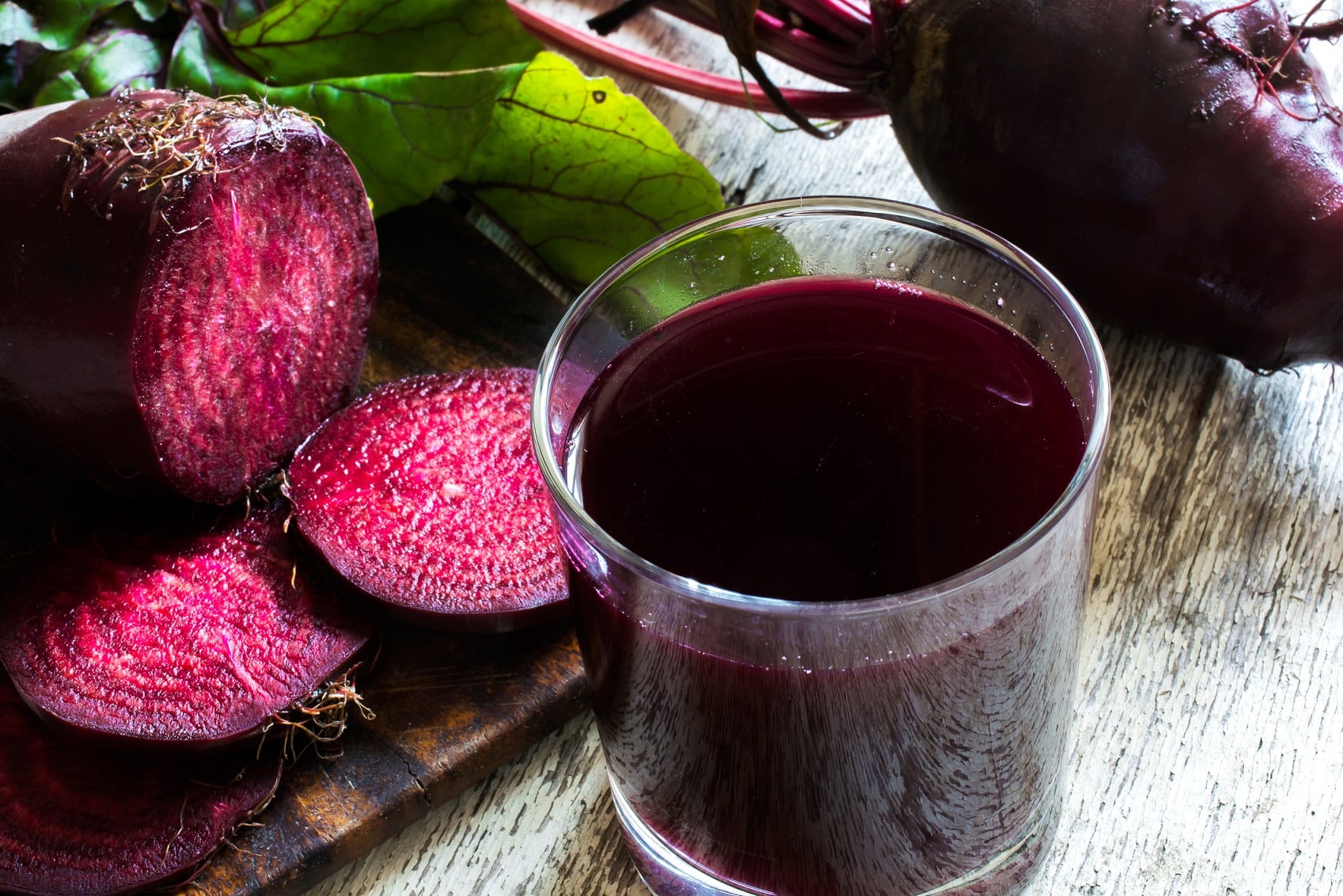Researchers in Singapore aimed to compare the effects of a nitrate-rich isotonic beetroot drink (ISO-BR) with a nitrate-free isotonic drink (ISO-C) on sprint interval exercise (SIE) performance after five days of supplementation.
“The findings indicate that ISO-BR may confer an advantage in terms of the time to peak power,” the researchers wrote.
Nitrate-rich beetroot juice
Beetroot juice which is known for its high nitrate content, has been shown to improve skeletal muscle function and metabolism. While the performance-enhancing effects of nitrate on elements of endurance performance, such as the time to exhaustion are well documented, evidence of an effect on SIE or high-intensity interval training (HIIT) is mixed.
The researchers previously analyzed 17 randomized trials on dietary nitrate and found only six out of 11 reported performance gains, while another meta-analysis found no overall benefit for peak or mean power output. More recently, an umbrella review of 20 systematic reviews found mixed results, where some reported gains in peak and mean power, while others showed improvements only in time to peak power.
“Thus, collectively, the evidence suggests that the overall effect of nitrate (including beetroot) supplementation on SIT/HIIT remains unclear,” they wrote.
They noted that differences in protocols, nitrate doses, beetroot products and supplementation duration are likely to explain the mixed results.
Higher chronic nitrate intake has been found to increase plasma nitrite levels, suggesting the body stores nitrate and nitrite in proportion to intake, however, evidence for performance benefits from higher chronic doses also remains mixed.
Isotonic drink format benefits
Isotonic drinks are a popular choice amongst active individuals and athletes looking to maintain hydration and energy levels while exercising.
As the researchers explained, around 25% of ingested dietary nitrate is absorbed by the salivary glands and reduced to nitrite by oral bacteria, which can be converted into nitric oxide (NO) in the stomach or enter systemic circulation.
They suggest that enhancing oral microbiome activity could promote NO production, as the use of antibacterial mouthwash has been shown to reduce the plasma nitrite concentrations post-ingestion, likely by disrupting the oral microbiota.
“Thus, enhancing oral microbiome activity could promote NO production,” they wrote.
They also note that delivering nitrate through an isotonic drink may be beneficial as isotonic drinks have been found to improve gastric emptying and nutrient absorption, and combining nitrate with ascorbic acid, such as that found in beetroot juice in an isotonic drink may also enhance NO production in the stomach.
Furthermore, isotonic drinks increase salivary flow rates and therefore may improve the transfer of nitrite into the circulation.
Study details
As trained athletes may respond less to nitrate supplementation due to already elevated nitric oxide levels, the researchers recruited 20 recreationally active participants between 21–40 years old.
Each participant completed two main trials in a randomized crossover design. They consumed two 285 mL/day of either a nitrate-rich beetroot drink (ISO-BR) or an isotonic drink with no nitrate (ISO-C) which acted as a placebo, for four days, with the final dose 2 hours before performing sprint interval exercise (SIE). They repeated the protocol with the opposite drink in the second trial.
The researchers measured salivary and plasma nitrate and nitrite levels, recorded exercise performance, and assessed drink preference through sensory evaluations.
Results found that ISO-BR significantly reduced the time it took participants to reach peak power, however, it did not increase peak or mean power output compared to a nitrate-free isotonic control drink (ISO-C).
There were no significant differences observed in most muscle oxygenation metrics, however, ISO-BR increased deoxygenated hemoglobin, which the researchers said suggested faster muscle oxygen extraction.
ISO-BR also considerably elevated salivary NO and plasma nitrate compared to ISO-C, however, plasma nitrite levels remained unchanged, which was possibly due to the rapid conversion to nitric oxide (NO) or muscle-level nitrite storage.
The researchers hypothesize that ISO-BR enhanced adenosine triphosphate (ATP) and phosphocreatine (PCr) turnover and oxygen extraction, based on the relative changes in deoxyhemoglobin and deoxymyoglobin, which is a response that differs from prior findings in longer-interval training protocols.
They did note that the study lacked a comparison of water or nitrate-depleted beetroot juice, writing “having water, nitrate-depleted beetroot juice drink or nitrate-depleted isotonic beetroot juice drink as another comparator in this study could have provided a more thorough understanding of the efficiency and benefits of ISO-BR.”
Source: Beverages, 2025, 11(4), 97; doi: 10.3390/beverages11040097; “Five-Day Supplementation with an Isotonic Beetroot Juice Drink Improves Sprint Interval Exercise and Muscle Oxygenation in Physically Active Individuals: A Randomized Crossover Trial.” Authors: Wong, T. et al




